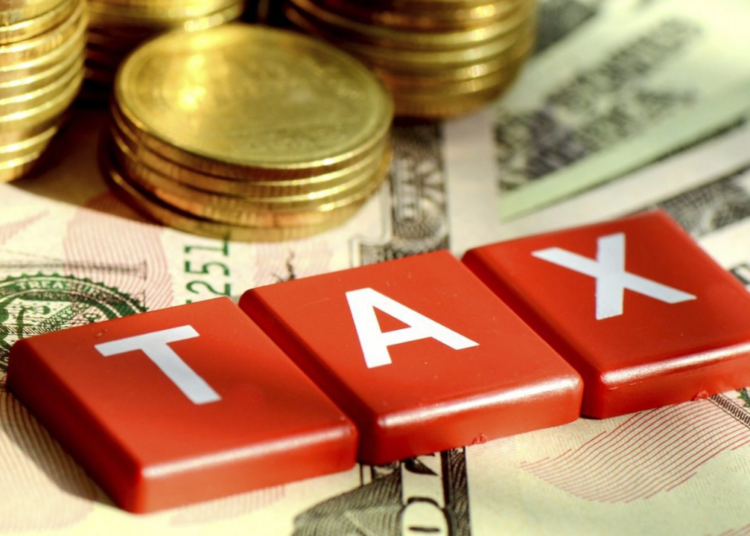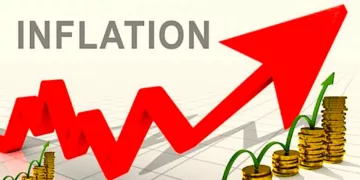Nigeria is facing a severe economic crisis, with a staggering wealth gap between the rich and the poor. According to Oxfam, 99 per cent of the country’s wealthiest citizens evade or avoid paying taxes, while millions of Nigerians struggle to afford their next meal.
A report by accountable governance program manager at Oxfam in Nigeria and lead author of the report, Henry Ushie, and country director, Oxfam in Nigeria John Makina, indicates that Nigeria’s wealth Gini coefficient stands at 35.1, placing it 11th out of 16 West African countries in terms of income inequality.
It said the economic situation is critical, with millions struggling to make ends meet as prices rise faster than wages.
“Nigeria ranks among the countries with the highest levels of income inequality in sub-Saharan Africa, with a small fraction of the population controlling the majority of the nation’s wealth. The country’s wealth Gini coefficient, a measure of income inequality, stands at 35.1, placing it 11th out of 16 West African countries and highlighting Nigeria’s severe economic divide.
“The economic situation in Nigeria is critical, with millions struggling to make ends meet as prices rise faster than wages, leaving many hungry and desperate. Over 133 million people—about 7 in 10—are facing hunger, with women and girls disproportionately affected, making up nearly 63 per cent of the hungry population. In rural areas, less than 40 per cent of households have access to electricity, severely limiting educational opportunities and access to healthcare. Women and girls bear a heavier burden of poverty, with a 35 per cent literacy rate compared to 59.5 per cent for men, and they have limited access to education and land ownership”; the report indicated.
Oxfam is calling on the Nigerian government to adopt measures to address the growing economic and social divide. These measures include increasing social spending, implementing progressive taxation, and investing in human capital development.
The organisation also recommends supporting smallholder farmers, reforming agriculture, and collaborating with civil society to promote gender equality and hold the government accountable.
“Oxfam is calling on the Nigerian government to adopt the following measures:
Increase Social Spending: Nigeria currently allocates only 2-3.5 per cent of its budget to education and 4-7 per cent to healthcare, well below global standards. The government must raise social sector spending to at least 10 per cent of the budget in health, education, and agriculture.
“Implement Progressive Taxation: Establish a wealth tax targeting high-net-worth individuals. A 1% tax on net worth over $1 million could raise $7.5 billion annually, which could fund critical social programmes.
Invest in Human Capital Development: Improve education, job creation, and healthcare, focusing on rural and underserved populations. Providing living wages, reducing corruption, and enhancing educational opportunities, particularly for women and girls, will improve Nigeria’s Human Development Index (HDI) by 2030.
“Support Smallholder Farmers and Reform Agriculture: Strengthen policies that improve access to credit, land, and rural infrastructure for smallholder farmers. Prioritizing women’s land rights and promoting sustainable farming practices will help bridge the rural-urban divide.
“Reform Land Policies: Establish a National Land Commission, conduct a National Land Audit, and ensure that land redistribution programmes are transparent and inclusive, particularly addressing gender disparities.
Collaborate with Civil Society: Non-state actors, including civil society organizations, the private sector, and community groups, should advocate for pro-poor policies, hold the government accountable, and promote gender equality. Develop a comprehensive wealth registry and stronger tax enforcement will ensure high-net-worth individuals contribute fairly”; Oxfam recommended.
With over 20 million children out of school, it is unacceptable to continue giving wealthy individuals and companies tax breaks, incentives, and waivers. Oxfam urges the government to take immediate action to address the deepening inequality crisis.
The situation in Nigeria according to Oxfam is alarming, with millions struggling to afford their next meal while the super-rich continue to amass riches without paying their fair share of taxes. Complexities in tax laws and a lack of transparency enable the situation, depriving the country of crucial revenue.
The report added that Implementing a progressive wealth tax could generate over $7.5 billion annually, sufficient to double the government’s current health budget or reduce household out-of-pocket health expenditures by 40 per cent.
Oxfam noted that the growing debt burden means that most of the national budget is spent on paying off loans instead of funding essential public services. It emphasises the need for critical tax reform to address the growing economic and social divide.
Oxfam stressed that the organisation’s report highlights the urgency for reform, stating that Nigeria’s growing inequality is not just an economic issue but a social crisis that threatens long-term stability, adding that immediate action is needed to address the deepening inequality crisis and ensure a more equitable society.





